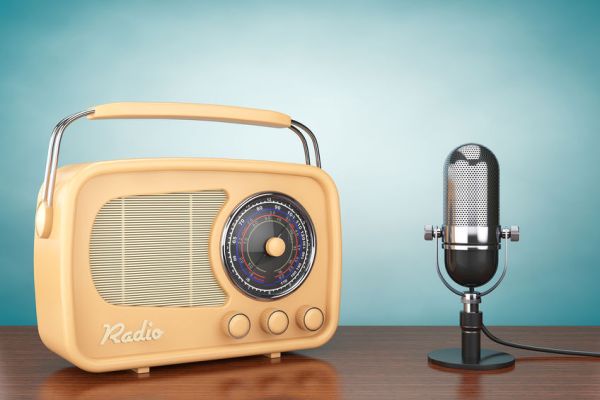Plenty has been written about the power and popularity of podcasts. The number of people tuning in
continues to climb with 48 million Americans listening on a weekly basis.
However, those figures pale in comparison to the reach of your average AM/FM radio program. With 93
percent of the U.S. tuning in, radio is still one of the leading broadcast platforms for reach, topping both
television and smartphone usage.

With an infinite number of programs dedicated to topics both large and small, radio can provide a great
way for PR pros to gain access to different audiences.
We sat down with two experts, a radio producer and a PR professional, to learn more about earning
radio coverage. Ed Easton Jr. fields a variety of pitches in his role as News Producer for 1010 WINS and
has worked in radio for 11 years. Lauren Hackett is the Senior Vice President of Global Communications
at The Economist and has demonstrated success in pitching her company to radio shows.
One thing that doesn’t differ between radio and other media is how important it is to have all your
ducks in a row before sending your pitch. Easton Jr. says, “I would always prefer to have all the details
upfront and make sure they are 100 percent accurate. We do a lot of investigative work. It’s a pet peeve
of mine when a pitch is missing information or misleading. It completely kills the momentum of the
conversation.”
So how can you make sure that your next pitch for radio is in tip-top shape? Our experts shared these
five tips:
1. Do your research and listen to the programs.
You don’t want to waste your time or the time of the person receiving your pitch. Do your
research in advance to make sure your message is hitting the right stations. Take the time to
understand how a program works and how it’s structured. Get to know the on-air personality
a little bit in advance.
“Since I started working for the Economist, I listen to NPR every morning and am constantly
flipping between CNBC and MSNBC as well. You really need to put aside your personal media
tastes to make sure you are understanding who your brand is and which stations fit them,”
offers Hackett.
2. Know the external audience.
Knowing who listens goes hand-in-hand with doing your research and should seem like a no-
brainer to a trained PR professional. If you’re pitching radio, it’s crucial to be mindful of the
station you’re pitching and how you can personalize your story idea to fit their audience.
Easton Jr. recommends, “Be mindful that no matter what pitches are thrown our way, the
story has to make sense for the station’s demographic and mission.”
He adds, “So many times I see a story and I realize it could be perfect for another station. So
many PR people do the copy/paste. You wish they would tailor it more to the station and
producer to get their message across appropriately.”
3. Organize all your information up front.
Life for a reporter or news producer is so much easier when they have all of the information
they’ll need ready to go the moment you pitch. If you aren’t able to answer all their
questions up front, it’s important to make sure you follow up in a timely manner.
As a PR pro pitching radio, the follow-through is everything. Easton Jr. cautions, “Be mindful
about who you’re promoting. If you say you’re going to have an NBA basketball player, make
sure they are ready to go. Last minute changes on air aren’t good. It just doesn’t have the
same value if you find another source.”
News producers on radio shows will want to know as much as they can in advance about
what your spokesperson will be sharing. Hackett says, “It’s important for bookers and
producers to know what they’re getting. They want to know the point of view the guest will
be taking.”
4. Find the right spokespeople within your organization.
What the station is looking for can really vary depending on their audience and the pitch
itself.
Sometimes it can just be a general want. Hackett notes, “Many of my colleagues find that
more and more producers are asking for female voices and female faces.”
No matter who you get to do the speaking, you need to make sure they are properly
prepared.
“If someone raises their hand and says ‘I’ll do media,’ you have to run with that. There’s no
point in forcing people to do it,” Hackett explains. “If you’ve got a big announcement, be
specific on practicing around that announcement. Go through the tough questions now so
you can answer them later.”
5. Try to have your own audio available.
If you’re able to pull it together, having pre-packaged assets available for stations to use can
be super helpful. It’s another way to provide additional assistance to the producer on the
show that will help them tell your story.
Providing your own audio also gives you that little bit of extra control over your message,
which is always valuable in the earned media realm.
Some stations will use it and others won’t. It’s still a great thing to have at your disposal.
“Not every outlet will want your story, but all of that goes into building our lists out, doing the research
and making sure you understand the program you’re pitching and what types of guests they like to have
on.” Hackett says. “We go where there’s opportunity as much as possible, but also try to create
opportunity as much as we can.”
Source : https://www.prdaily.com/5-tips-for-pitching-for-radio/






